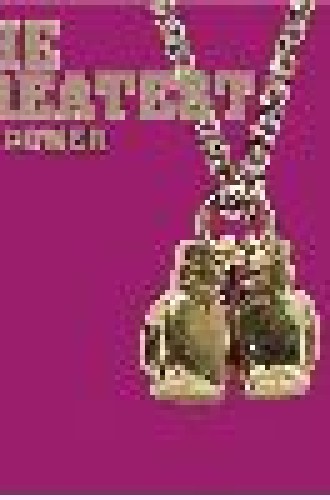Sound alternatives
To call Justin Roberts a creator of children’s music is to deny his songs’ adult appeal. It would be like restricting Charles M. Schulz’s Peanuts cartoons to kids. Like Schulz, Roberts has a knack for creatively (and tastefully) folding scriptural wisdom into his work. In the two-CD effort Why Not Sea Monsters? Songs from the Hebrew Scriptures and New Testament (Carpet Square) he steers clear of any ham-fisted agenda while staying faithful to the power and majesty of the Bible stories.
And he makes those stories his own. On the “Hebrew Scriptures” CD, Roberts gets things off to a clever start with “Why Not a Spark?” Singing in a style that suggests John Lennon, James Taylor and Glenn Tilbrook, Roberts lays out the tale of creation as if God were a smiling child in a swirling cosmic sandbox: “On the fourth day / God said, Where are the stars? / Where’s Mercury, Venus and Mars?/ Where’s all those old rusty cars? / Wait, that’s later!”
He also covers a song by playwright Craig Wright, “Where Were You?” an epic-tinged account of God’s climactic speech in Job 38: “Where were you when I set the leopard running? / Where were you when I taught the birds their songs / And they all sang together?”
On the “New Testament” disc, Roberts displays a sense of whimsy that, while perfectly appropriate for kids, is childlike as opposed to childish. “Now You’re Back” turns the tale of the prodigal son into a rave-up where the father exults: “We gonna twist and shake / You spent all of my money money / That isn’t too funny funny / Fact it’s a little wack / But now you’re back.” “Rub a Dub Dub” musically transforms Christ’s foot-washing ritual from John 13 into an infectious reggae dub, and “What’s He Doing Up There?” poses this question about Zacchaeus: “What’s he doing up there? / Why can’t he get a lawn chair?”
Roberts darts between chugging rock rhythms and more pensive soundscapes gilded by timpani, keyboards, strings and an entire menagerie of pet sounds. Both CDs come with lyrics and chord charts. Unlike so much kids’ music, which drives you nuts after just a single spin, Roberts’s stylings unfold in rich layers that you’ll look forward to exploring through repeated listens.
Some other new CDs:
With a voice resembling a more tuneful Lou Reed and the sonic puckishness of Tom Waits, Giant Sand frontman Howe Gelb folds in an unlikely yet brilliant ingredient: a gospel choir. The 11-member Voices of Praise choir sounds like an earthy ensemble you might expect to find in a dirt-road sanctuary where the walls reek of plaster and plywood. From the neon-sublime “The Chore of Enchantment” to the frayed, foxy blues of “That’s How Things Get Done,” Gelb has crafted a joyous dervish of sound that would’ve served as the perfect soundtrack for Robert Duvall’s The Apostle.
This live performance by Stuart—a child prodigy on mandolin—owes its shimmering energy to the fact that Stuart forgot he had a Ryman Auditorium gig and had to assemble a set list—and expanded band—on the fly. With just a 20-minute dressing room rehearsal, the Superlatives explode into a crackling version of “Orange Blossom Special,” a fabulous mix of bluegrass virtuosity and down-home spontaneity. “Homesick,” by contrast, rests on a plaintive bed of layered harmony and weepy (but not treacly) fiddle runs.
Over the past decade Cat Power (aka Chan Marshall) has built her reputation by combining artistic daring andvocal and songwriting fragility. On this disc Marshall (the daughter of a traveling church pianist) turns in a consistent, focused effort thanks largely to Memphis session legends Mabon “Teenie” Hodges (guitar) and his bassist brother, Leroy “Flick” Hodges. From the title track—elegantly framed in tremolo guitar, strings and piano—to the soulful twilight spark of “Could We,” this album swims in a luxurious depth of feeling, perhaps nowhere more so than in the fever-chill loss ballad “Where Is My Love.”
As a former member of Chicago’s Torben Floor, Ott was once pursued by record labels drawn to the group’s ethereal songwriting—and Ott’s wobbly tenor, reminiscent of Radiohead’s Thom Yorke. But Ott has come a long way since, as this album attests. Ott has more gravel and world-wisdom coloring the edges of his voice, as on the Beatlesque stomper “Daylight.” “Sunbathing,” a tune dating to Ott’s Torben Floor days, holds up strong in this tender acoustic guitar–vocal version. Think of Ott as a modern Cat Stevens without the flower-child tendencies.
India produces more movies than Hollywood, and among Bollywood singers, 72-year-old Asha Bhosle is legendary, having garnered many awards over her six-decade career. This two-CD collection is divided into ghazals (conversations between lovers in Urdu poetry) and romantic duets with male singers. Some songs have a contemporary feel, with Bhosle’s gossamer vocals framed by classical guitar, electric piano and drum machine. Her duet with Rahul Burman’s gruff vocals swings like an outtake from a 1960s Afro-Cuban concert.










